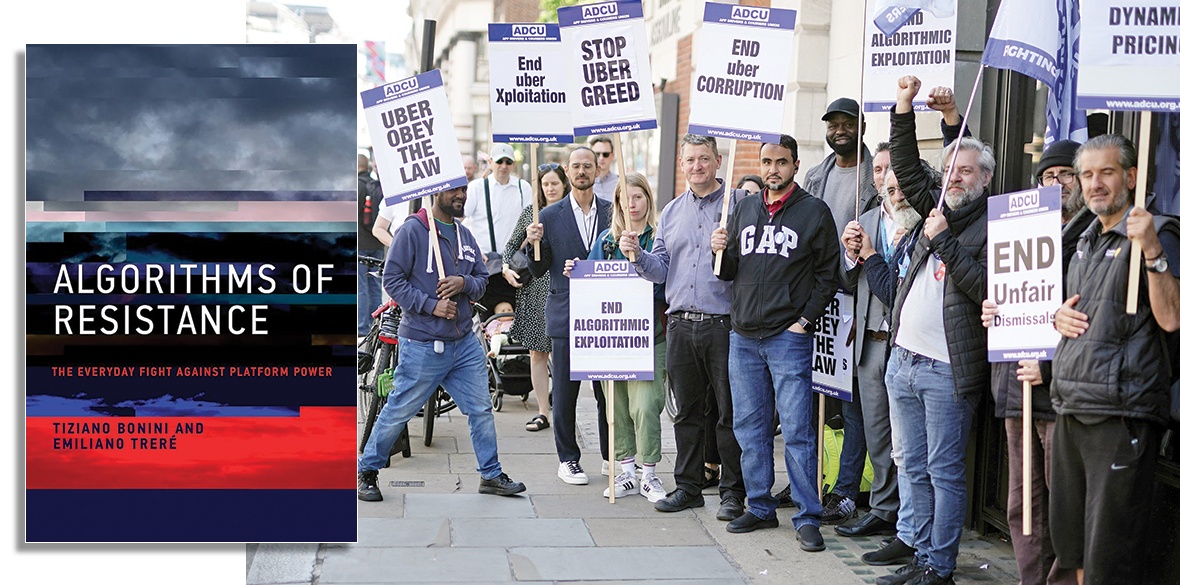This is the last article you can read this month
You can read more article this month
You can read more articles this month
Sorry your limit is up for this month
Reset on:
Please help support the Morning Star by subscribing here
Algorithms of Resistance
Tizanio Bonini and Emilaiano Trere
MIT Press, £29
LET’s start by saying that this book was written by two academics and published by an academic publisher. So it is keen on its theory, and although it is dedicated to workers and activists, it can at times seem a little dry and abstract.
But – and a big but – it is still a work that everyone interested in the fight against oppressive IT systems should read. The authors rightly explain that algorithmic management, in which human managers are replaced by IT systems, often via the internet, are as much an attack on worker freedoms as the factory system and its dominating machines.
These may or may not be AI systems: the AI hype is in some ways a noisy concealment of this bigger picture. In our age of information automation, whole groups of existing workers have become dominated by IT systems. We also see the creation of completely new kinds of casualised labour in the form of zero-hour platform or gig workers, for example those exploited by Uber, Just Eat and other delivery companies.
The internet, combined with mobile devices, has removed the geographical constraint of the factory, but also supports data collection on a truly massive scale, so-called datafication. This in turn makes possible the recent data-driven AI systems and their widespread distribution and application.
The strength of this book is that it has gone out and studied how workers are responding. Three chapters look at resistance by platform workers, creative workers, and social/political activists. The authors argue that much of it involves ”gaming” the algorithms that control IT systems by counter-algorithms, or algorithms of resistance.
Sometimes this is purely individual, as when platform workers open multiple accounts on the platform under different names. Sometimes it is collective: as in co-ordinated logouts to raise contract prices by reducing supply or in sharing out work by private agreement. And while the internet is used to oppress, it also supports private chat groups in which algorithms of resistance can be formulated and shared and common actions agreed.
Naturally the employers fight back: their counter to multiple accounts is to require workers to pass a face recognition test on starting work. Face recognition software is fallible, intrusive and racially biased, as it is known to work less well on people with dark skins. Individual resistance is a poor counter here, and the recent EU AI law specifically targets the use of biometric identification systems.
In the same way, the theft of copyrighted creative work by data-driven AI systems is hard for an individual creative to challenge. The recent industrial action in the US film industry shows that real and permanent organisations are needed, to build on and strengthen ad hoc grass roots solidarity actions. Trade unions, in fact.
However, there is very little reference to trade unions in this book – a definite weakness. In Britain, United Workers of the World was set up in 2014 specifically to organise migrant cleaners and other marginal workers, and its sister union The Independent Workers Union of Great Britain has taken a leading role in legal challenges to the big platforms and their employment practices.
More established unions such as the Bakers, Food, and Allied Workers (BFAWU) have also become involved in such challenges. My own union, UCU, has just set up a national working group on the possible workplace and educational impacts of data-driven AI systems. But this book is very useful reading for those involved in trying to organise affected workers who want to know more about mechanisms of resistance.
Finally, the authors have taken an important step in making their book available to the workers and activists they want to reach: you can find it as Open Access online at https://direct.mit.edu/books/oa-monograph/5721/Algorithms-of-ResistanceT....











